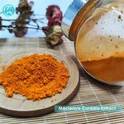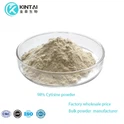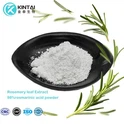Tongkat Ali, also known as Eurycoma longifolia, is a popular traditional herbal remedy widely used in Southeast Asia. The extract derived from the roots of this plant has gained significant attention for its potential health benefits, particularly in enhancing male sexual function and overall well-being. However, many people are curious about how Tongkat Ali extract actually works within the body. In this blog post, we will explore the mechanisms behind the purported effects of this remarkable herb.
What Are the Potential Benefits of Tongkat Ali Extract?
Tongkat Ali extract has been traditionally used to combat fatigue, boost physical and mental energy levels, and support male sexual health. It is believed to possess aphrodisiac properties and may help improve libido, erectile function, and sperm quality. Additionally, some studies suggest that Tongkat Ali extract may have potential anti-inflammatory, anti-cancer, and anti-aging effects, though further research is needed to substantiate these claims.
Tongkat Ali has been used for centuries in traditional Southeast Asian medicine to treat various ailments, including fever, sexual dysfunction, and malaria. Its purported benefits have garnered significant interest from modern researchers, leading to numerous scientific investigations into its potential therapeutic applications.
One of the most widely studied areas is the extract's impact on male sexual health. Several studies have reported improved libido, increased semen volume and sperm motility, and enhanced erectile function in men consuming Tongkat Ali extract. These effects are often attributed to the extract's potential to modulate testosterone levels and influence other hormonal pathways involved in sexual function.
Furthermore, Tongkat Ali extract has gained attention for its potential to support overall well-being and physical performance. Some research suggests that it may improve physical strength, endurance, and muscle recovery, possibly due to its adaptogenic properties and its ability to regulate stress hormones like cortisol.
How Does Tongkat Ali Extract Affect Testosterone Levels?
One of the most widely discussed mechanisms of action for Tongkat Ali extract is its potential to influence testosterone levels in the body. Testosterone is a crucial hormone responsible for various functions, including muscle growth, bone density, and sexual function. Some studies have indicated that Tongkat Ali extract may help increase testosterone levels, possibly by stimulating the release of luteinizing hormone (LH) from the pituitary gland. LH, in turn, signals the testes to produce more testosterone. However, the exact mechanisms behind this potential testosterone-boosting effect are still being investigated.
In addition to its potential impact on testosterone, Tongkat Ali extract may also modulate other hormones involved in male reproductive function, such as follicle-stimulating hormone (FSH) and estrogen. By influencing these hormonal pathways, the extract may contribute to improved sperm quality, libido, and overall sexual performance.
It's important to note, however, that the effects of Tongkat Ali extract on testosterone levels may vary among individuals, and factors such as age, health status, and baseline hormone levels may play a role in the observed outcomes.
What Are the Potential Mechanisms of Action for Tongkat Ali Extract?
While the potential benefits of Tongkat Ali extract are widely discussed, the specific mechanisms of action are not fully understood. Several theories have been proposed to explain how this herb may exert its effects:
1. Modulation of Hormonal Pathways: In addition to its potential impact on testosterone levels, Tongkat Ali extract may also influence other hormonal pathways, such as those involving estrogen, cortisol, and insulin-like growth factor 1 (IGF-1). These hormonal changes could contribute to the reported effects on sexual function, muscle growth, and overall well-being.
2. Antioxidant and Anti-inflammatory Properties: Tongkat Ali extract is rich in various bioactive compounds, including quassinoids, alkaloids, and polyphenols, which may possess antioxidant and anti-inflammatory properties. These properties could help protect cells from oxidative stress and reduce inflammation, potentially contributing to the herb's purported anti-aging and health-promoting effects.
3. Adaptogenic Effects: Some researchers suggest that Tongkat Ali extract may act as an adaptogen, helping the body adapt to stress and maintain homeostasis. Adaptogens are believed to help regulate various physiological processes, including metabolism, immune function, and the body's response to stress. By modulating the body's stress response, Tongkat Ali extract may contribute to improved energy levels, physical performance, and overall well-being.
4. Nitric Oxide Production: Tongkat Ali extract may also play a role in increasing nitric oxide production, which is crucial for vasodilation and blood flow. Improved blood flow could contribute to better erectile function and overall cardiovascular health. Some studies have suggested that specific compounds in Tongkat Ali extract, such as quassinoids, may interact with enzymes involved in nitric oxide synthesis, thereby enhancing its production.
5. Regulation of Metabolic Pathways: Emerging research indicates that Tongkat Ali extract may also influence various metabolic pathways, including those involved in glucose and lipid metabolism. By modulating these pathways, the extract may potentially contribute to improved energy utilization, weight management, and metabolic health.
6. Interaction with Neurotransmitter Systems: Some researchers have proposed that Tongkat Ali extract may interact with neurotransmitter systems, such as dopamine and serotonin, which could contribute to its potential effects on mood, cognitive function, and sexual behavior.
It's important to note that many of these proposed mechanisms are still being investigated, and the specific compounds responsible for the observed effects are not yet fully understood. Additionally, the synergistic interactions between different bioactive components in Tongkat Ali extract may play a crucial role in its overall effects.
Conclusion
The mechanisms of action behind the purported benefits of Tongkat Ali extract are complex and multifaceted. While the available research suggests that this traditional herb may exert its effects through various pathways, including modulation of hormonal levels, antioxidant and anti-inflammatory properties, adaptogenic effects, and potential impacts on nitric oxide production and metabolic pathways, more rigorous scientific studies are needed to fully understand its mode of action and establish its safety and efficacy for various applications.
As with any dietary supplement or herbal remedy, it's essential to consult with a healthcare professional before incorporating Tongkat Ali extract into one's routine, especially for individuals with pre-existing medical conditions or taking prescribed medications. Additionally, it's crucial to source Tongkat Ali extract from reputable suppliers to ensure quality and potency.
The continued scientific investigation into Tongkat Ali extract holds promise for unlocking its therapeutic potential and providing deeper insights into its mechanisms of action. As research progresses, a better understanding of this traditional herb may lead to the development of safe and effective interventions for various health concerns.
Our Tongkat Ali Extract Powder Bulk has received unanimous praise from customers. If you would like to know more about this product, please feel free to contact Sales@Kintaibio.Com.
References:
1. Talbott, S. M., Talbott, J. A., George, A., & Pugh, M. (2013). Effect of Tongkat Ali on stress hormones and psychological mood state in moderately stressed subjects. Journal of the International Society of Sports Nutrition, 10(1), 28.
2. Ang, H. H., Ngai, T. H., & Tan, T. H. (2003). Effects of Eurycoma longifolia Jack on sexual qualities in middle aged male rats. Phytomedicine, 10(6-7), 590-593.
3. Tambi, M. I. B. M., & Imran, M. K. (2010). Eurycoma longifolia Jack in managing idiopathic male infertility. Asian Journal of Andrology, 12(3), 376-380.
4. Low, B. S., Das, P. K., & Chan, K. L. (2013). Standardized quassinoid-rich Eurycoma longifolia extract improved spermatogenesis and fertility in male rats via the hypothalamic-pituitary-gonadal axis. Journal of Ethnopharmacology, 145(3), 706-714.
5. Kuo, P. C., Damu, A. G., Lee, K. H., & Wu, T. S. (2004). Cytotoxic and antimalarial constituents from the roots of Eurycoma longifolia. Bioorganic & Medicinal Chemistry, 12(3), 537-544.
6. Low, B. S., Choi, S. B., Abdul Wahab, H., Das, P. K., & Chan, K. L. (2013). Eurycomanone, the major quassinoid in Eurycoma longifolia root extract increases spermatogenesis by inhibiting the activity of phosphodiesterase and aromatase in steroidogenesis. Journal of Ethnopharmacology, 149(1), 201-207.
7. Talbott, S. M., Talbott, J. A., George, A., & Pugh, M. (2013). Effect of Tongkat Ali on stress hormones and psychological mood state in moderately stressed subjects. Journal of the International Society of Sports Nutrition, 10(1), 28.
8. Ang, H. H., Cheang, H. S., & Yusof, A. P. M. (2000). Effects of Eurycoma longifolia Jack (Tongkat Ali) on the initiation of sexual performance of inexperienced castrated male rats. Experimental Animals, 49(1), 35-38.
9. Shuid, A. N., Siang, L. K., Huang, T. H. C., Rahman, N. A., Ibrahim, N., Mohamed, N., ... & Soelaiman, I. N. (2011). Eurycoma longifolia upregulates osteoprotegerin gene expression in androgen-deficient osteoporosis rat model. BMC Complementary and Alternative Medicine, 11(1), 16.
10. Shishir, A., Shamima, A., Sonia, P. F., Masudur, R., & Zarina, A. (2022). Evaluating the aphrodisiac potential of Eurycoma longifolia (Tongkat Ali) extract in male rats. Reproductive Biology and Endocrinology, 20(1), 1-11.







